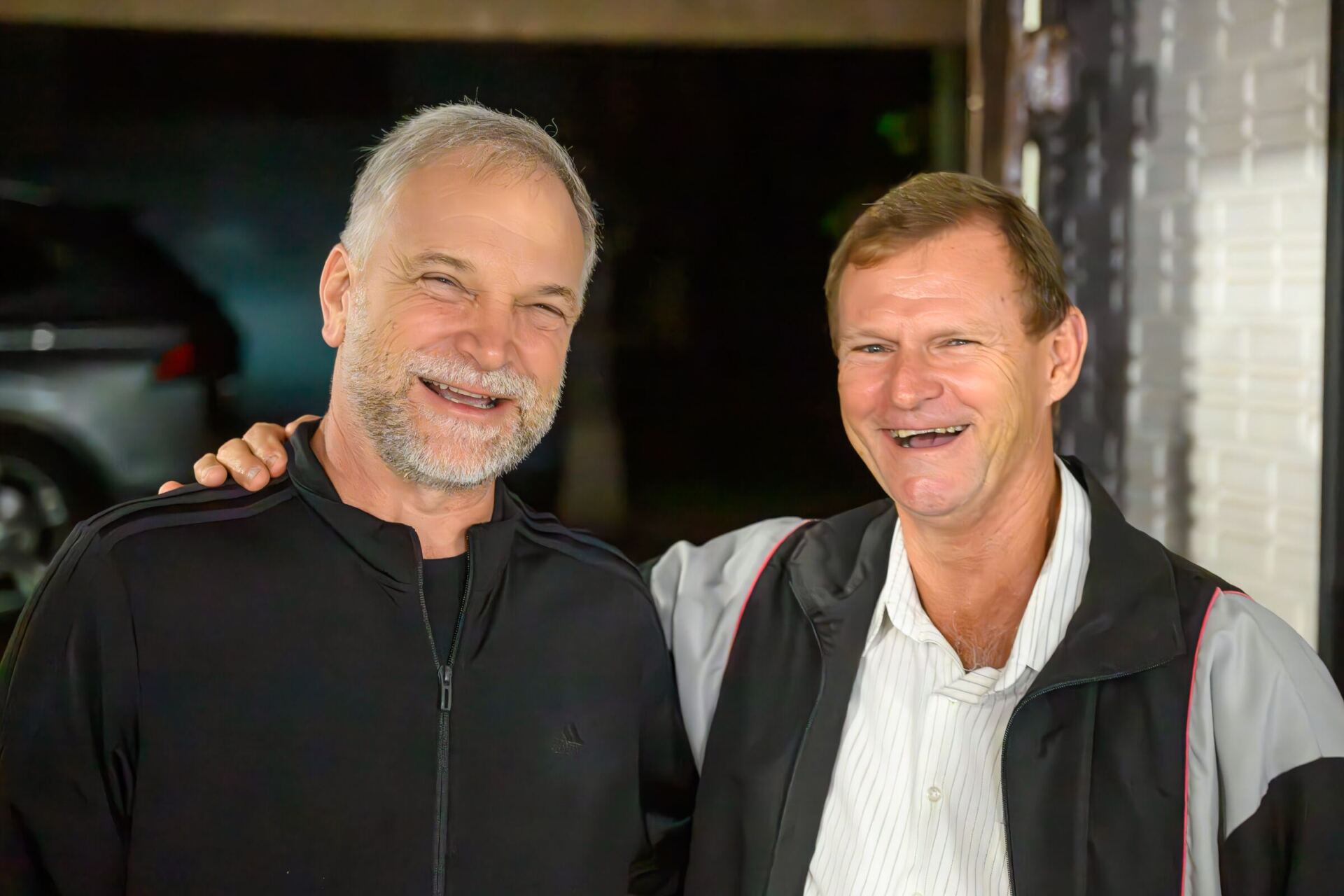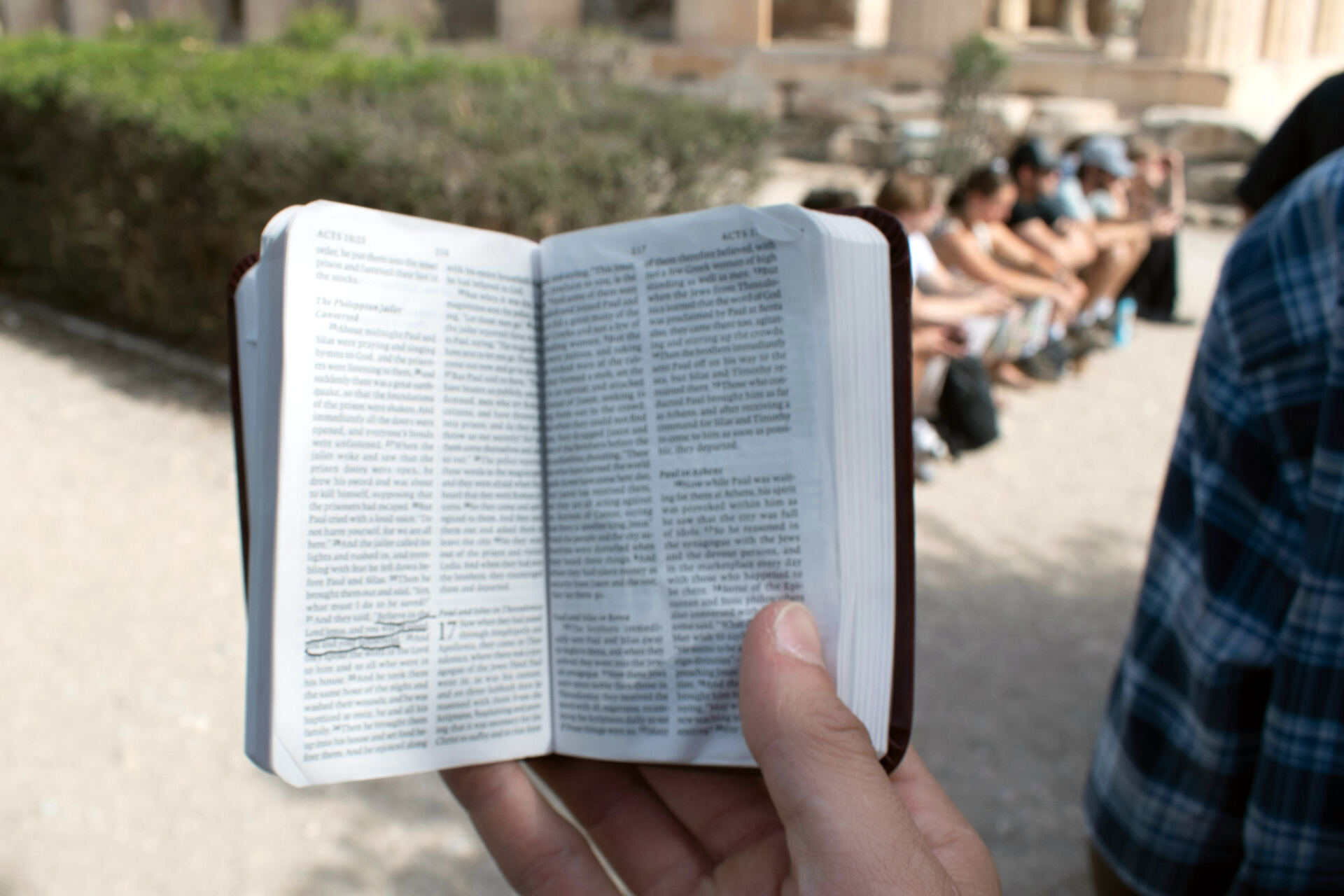Hebrews 1 is one of the most beautiful passages of Scripture. As a unit, the text lays out a complete picture of the person of Jesus Christ. It is to our benefit to be familiar with Hebrews chapter 1. In this respect, the chapter is a very useful chapter for both our devotional lives and for our articulation and defense of the Christian faith. Hebrews 1 presents Jesus both as the eternal Son of God, equal in His divinity with the Father, and as the exalted Son who has after His death, resurrection, and ascension been given dominion over all the creation.
In Hebrews 1, Jesus is portrayed as the uncreated eternal Son of God. As “Son,” there never was a time when Jesus did not exist. In fact, monotheism is attributed to the Son at the same time his person is distinguished from the person of the Father.
The Son is distinct from the Father as a unique person in Hebrews 1. First, in 1:1-2, just as God the Father spoke to the prophets in the Old Testament, He has in these ‘last days’ spoken in the Son. The Father used the Son in the creation of all things (1:2b) as they worked together without division to make creation.
Second, throughout the chapter, God the Father addresses the Son in a personal way saying, “You are my Son…” (1:5a) and again in vv.8-12, “Your throne, O’ God…” and “You, Lord, laid the foundation of the earth from the beginning…” It is to the Son, not angels, to whom the Father says, “Sit at my right hand…” These displays of personal address between the Father and the Son teach us that God the Father and God the Son are two distinct persons. Upon these truths are built the later articulations of the early Creeds.
Third, the Son is distinct from the Father by virtue of being the “radiance of the glory of God, and the exact imprint of his nature.” The Son radiates the Glory of God as one who in the fullness of His deity possesses that glory. The Scriptures teach us that the Son does not share His glory with other beings (Isa. 48:2,11) and so for the Son radiate this glory (not, as some say, by mere reflection), He must possess this glory and Himself be divine. He bears the eternal image of God not as a copy but as one who partakes in the full divine nature.
Hebrews further defends the deity of Christ by showing the Son’s participation in the Father’s works that. The Son creates with His Father (1:2b) and sustains this creation by His Word (1:3), an allusion to the authority and power of God’s Word over creation evidenced in Genesis 1 and numerous subsequent Biblical texts. The Son’s Word is the Word of God itself. The Son is identified as God (1:8) albeit distinct from God the Father who anointed Him (1:9). Most convincingly 1:10-12 quotes Psalm 102:25-27 to show that the Son is the Lord (YHWH is the divine name of God used in the Hebrew of Psalm 102:25). He is uncreated, unchanging and unending. The Son is truly God in every respect of divine glory, majesty, power, and nature. Like God the Father, He too receives worship (1:6a)—something that would be utterly blasphemous if the Son was not truly God.
The second theme in Hebrews 1 is the Son’s exaltation over all creation because of His suffering death (1:3b). The eternal Son of God who rules by virtue of deity, is exalted within creation in the human nature He takes upon Himself for our sake. The Son stepped down into creation taking on true humanity (2:6-9, 14, 17) but now His rank within creation is that of full exaltation. Verse 4 describes the Son as “having become as much superior to angels as the name he has inherited is more excellent than theirs.”
As we have been saying, the Son is already superior by virtue of who He is but He becomes superior in the rank that He holds within His creation. The same movement is seen in Phil. 2:6-11. The Son is equal with God but humbles Himself in the act of taking on human nature. Therefore God exalts Him within creation so that “at the name of Jesus every knee should bow, in heaven and on earth and under the earth,” (Phil. 2:10).
Jesus is the Son of God now exalted over all things. The ‘today I have begotten you’ in 1:5 comes from Psalm 2:7 where the royal King is installed on Mt. Zion—fulfilled now in a heavenly Zion. Similarly, Psalm 110:1 (Heb. 1:13) was fulfilled when the Father said to the Son “Sit at my right hand until I make your enemies a footstool for your feet.” The eternal Son of God who rules by virtue of His divine nature and creating power, now radiates this glory within His creation. He is the one who suffered and died for His people and in response, His eternal Father raised Him and exalted Him within the creation for which He suffered and died. He no longer veils His glory as a suffering servant. He is King of Kings and Lord of Lords.
More importantly, Hebrews 1 leaves us with a sense of awe. It leaves us with a wonder that can only be expressed in worship. First, we are left to marvel at what God is like. There is one God but He is three external persons. In our passage, the Father and Son interact in ways that clearly distinguish them within the godhead. Yet the Son is identified as God just as is the Father elsewhere in Scripture. Second, we marvel in this passage at what happens to the Son: that He is raised up in authority and reigns over all creation. It is the wonder of wonders that the almighty all-powerful God of the universe would step into his creation and take upon himself such a base and lowly rank within the creation. But now, oh blessed thing that it is, the Father has made it known to us who this Son truly is by raising Him up and seating Him in the throne room of the divine glory at the Father’s own right hand. Truly our God is like no other and has done what no other being would even consider doing all to display His eternal glory and majesty.
Editor’s Note: This article was originally published by Place for Truth on October 18, 2016. Used with permission.





